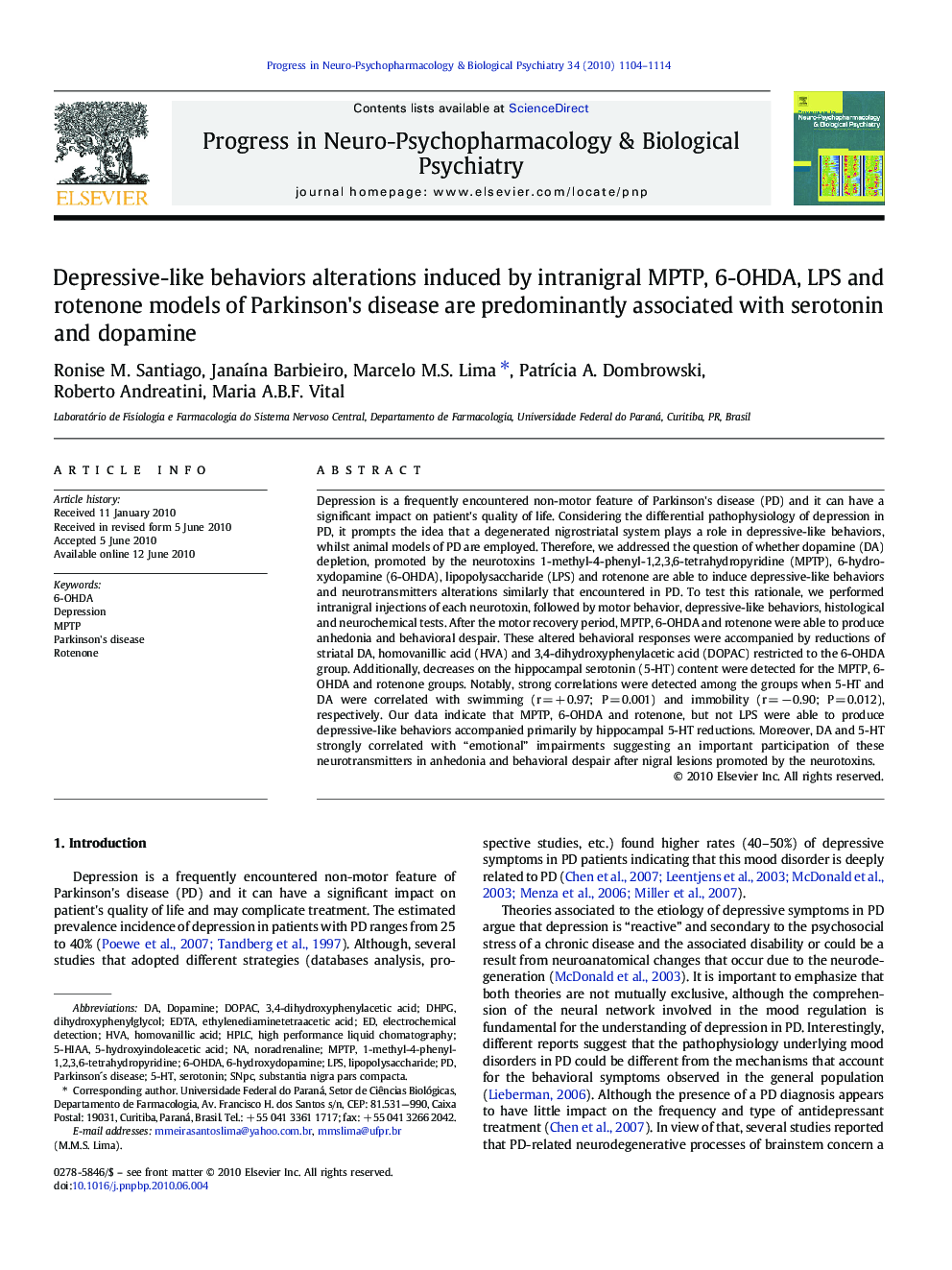| Article ID | Journal | Published Year | Pages | File Type |
|---|---|---|---|---|
| 2565398 | Progress in Neuro-Psychopharmacology and Biological Psychiatry | 2010 | 11 Pages |
Depression is a frequently encountered non-motor feature of Parkinson's disease (PD) and it can have a significant impact on patient's quality of life. Considering the differential pathophysiology of depression in PD, it prompts the idea that a degenerated nigrostriatal system plays a role in depressive-like behaviors, whilst animal models of PD are employed. Therefore, we addressed the question of whether dopamine (DA) depletion, promoted by the neurotoxins 1-methyl-4-phenyl-1,2,3,6-tetrahydropyridine (MPTP), 6-hydroxydopamine (6-OHDA), lipopolysaccharide (LPS) and rotenone are able to induce depressive-like behaviors and neurotransmitters alterations similarly that encountered in PD. To test this rationale, we performed intranigral injections of each neurotoxin, followed by motor behavior, depressive-like behaviors, histological and neurochemical tests. After the motor recovery period, MPTP, 6-OHDA and rotenone were able to produce anhedonia and behavioral despair. These altered behavioral responses were accompanied by reductions of striatal DA, homovanillic acid (HVA) and 3,4-dihydroxyphenylacetic acid (DOPAC) restricted to the 6-OHDA group. Additionally, decreases on the hippocampal serotonin (5-HT) content were detected for the MPTP, 6-OHDA and rotenone groups. Notably, strong correlations were detected among the groups when 5-HT and DA were correlated with swimming (r = + 0.97; P = 0.001) and immobility (r = − 0.90; P = 0.012), respectively. Our data indicate that MPTP, 6-OHDA and rotenone, but not LPS were able to produce depressive-like behaviors accompanied primarily by hippocampal 5-HT reductions. Moreover, DA and 5-HT strongly correlated with “emotional” impairments suggesting an important participation of these neurotransmitters in anhedonia and behavioral despair after nigral lesions promoted by the neurotoxins.
